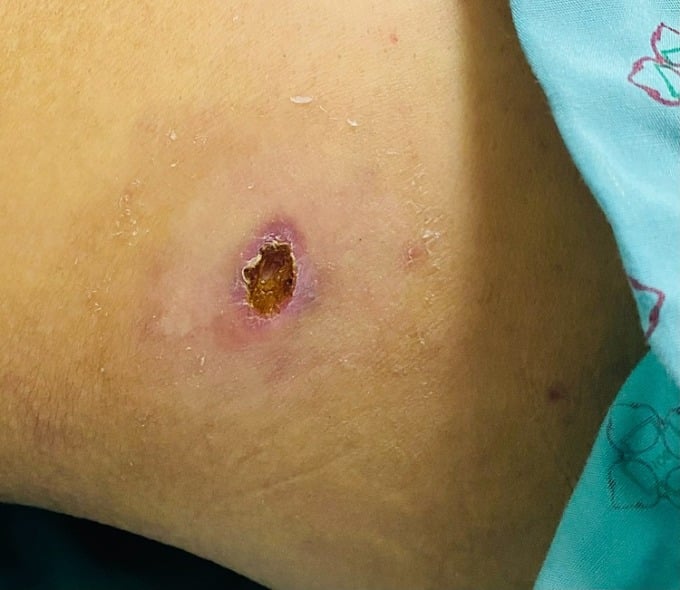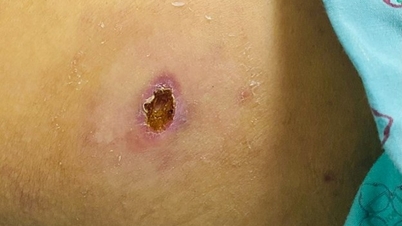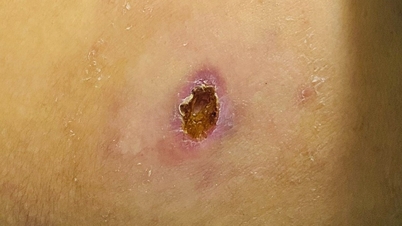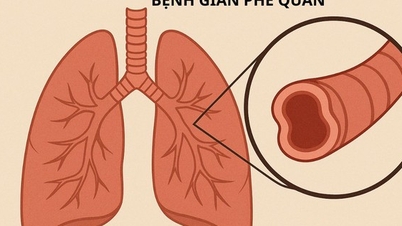Yen Bai CDC said more than 100 people in the province contracted scrub typhus in August, and a young woman died due to late hospitalization.
The number of cases of scrub typhus in August increased by 57 compared to the same period last year. Since the beginning of the year, Yen Bai has recorded 290 cases. Among them, a 16-year-old female, H'Mong ethnic, in Tram Tau district, died due to being late to the hospital. The patient's symptoms were severe, progressed rapidly, with complications of septic shock, blood clotting disorder, gastrointestinal bleeding, and she died after one day of treatment.
Scrub typhus is also known as tick fever or jungle fever. People of all ages can get the disease, but it is more common in workers. The disease can occur sporadically throughout the year, but is most common in the rainy and hot season. Scrub typhus is not transmitted from person to person.
The disease is caused by the bacteria Rickettsia orientalis (also known as Orientia tsutsugamushi). They live as parasites in some rodents and small animals (rats, chickens) and are transmitted to humans through bites, usually in soft skin areas such as armpits, groin, genitals, neck, abdomen, earlobes, and navel. People often get sick when working in fields, gardens, or on livestock farms.
Symptoms include high fever, severe headache, congested mucous membranes, rash, characteristic skin ulcers caused by mite larvae bites, and painful swelling of the peripheral lymph nodes near the ulcers. Experts say that there is no specific test for definitive diagnosis of tick fever, and the symptoms are very similar to other infectious diseases, so it is easy to confuse and miss the disease. In particular, people with the disease are likely to die when the disease is in a severe stage, with complications of multiple organ failure, but still cannot find a tick bite for accurate diagnosis. On the other hand, people living in remote, isolated areas are reluctant to go to medical facilities and go to the hospital when the disease is severe and difficult to treat.
To prevent, people living in areas where scrub typhus is endemic need to apply measures to prevent larvae such as avoiding areas with bushes and grass, wearing closed clothes, clothes soaked with insect repellent chemicals. There is currently no vaccine to prevent scrub typhus.

Ulcers on a patient with scrub typhus. Photo: Yen Bai Department of Health
Thuy Quynh
Source link


![[Photo] Unique art of painting Tuong masks](https://vphoto.vietnam.vn/thumb/1200x675/vietnam/resource/IMAGE/2025/11/14/1763094089301_ndo_br_1-jpg.webp)


![[Photo] Unique architecture of the deepest metro station in France](https://vphoto.vietnam.vn/thumb/1200x675/vietnam/resource/IMAGE/2025/11/14/1763107592365_ga-sau-nhat-nuoc-phap-duy-1-6403-jpg.webp)





























![[Photo] Special class in Tra Linh](https://vphoto.vietnam.vn/thumb/1200x675/vietnam/resource/IMAGE/2025/11/14/1763078485441_ndo_br_lop-hoc-7-jpg.webp)











































































Comment (0)